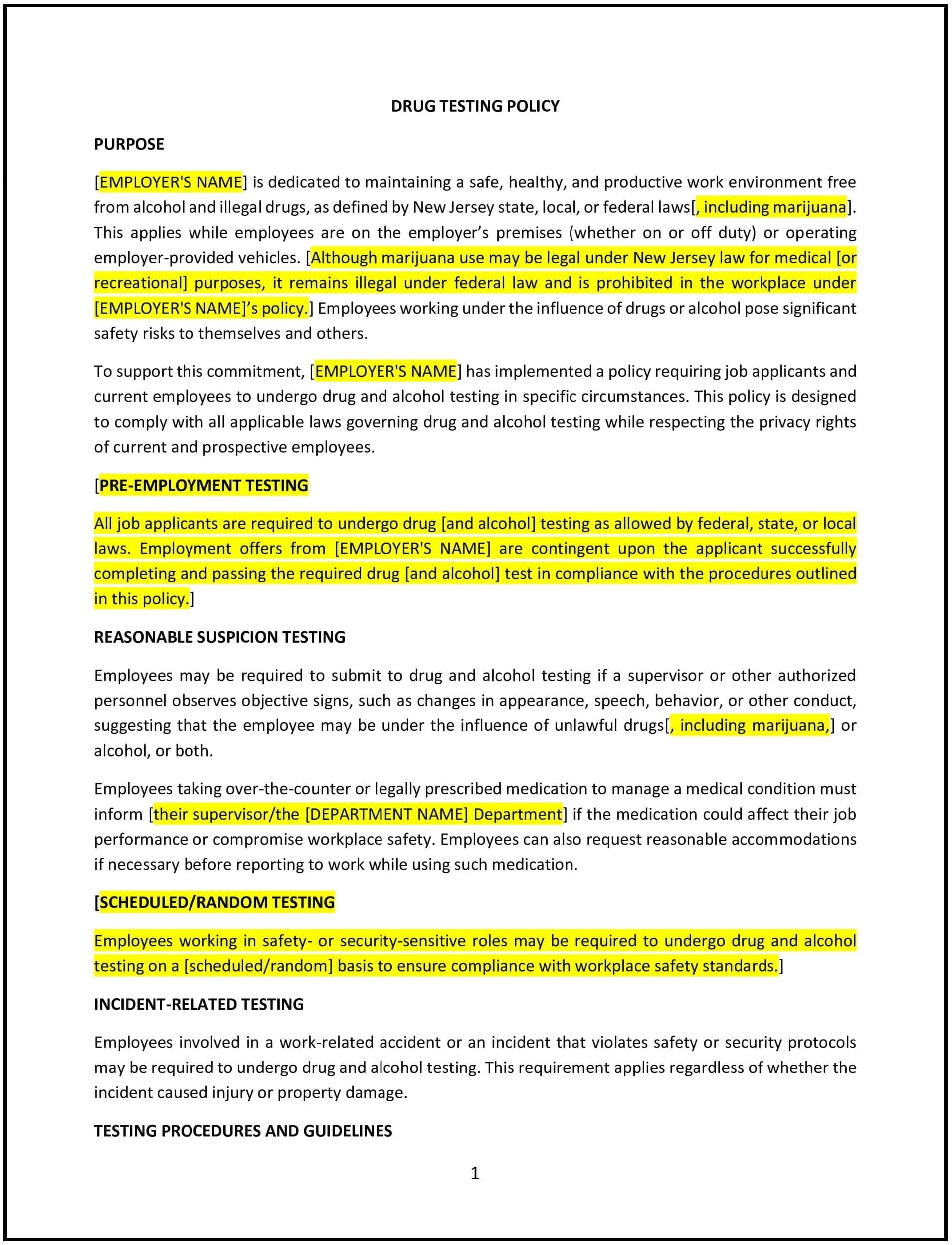Got contracts to review? While you're here for policies, let Cobrief make contract review effortless—start your free review now.

Customize this template for free
Drug testing (New Jersey)
A drug testing policy helps New Jersey businesses maintain a safe and productive workplace by establishing guidelines for employee drug and alcohol testing. This policy outlines when testing may occur, the substances screened, and the procedures for handling test results. It also sets expectations for confidentiality, employee rights, and potential consequences for violations.
By adopting this policy, businesses in New Jersey can promote workplace safety, reduce risks, and ensure clarity in drug testing procedures.
How to use this drug testing policy (New Jersey)
- Define the purpose of drug testing: Explain why the business conducts drug testing, such as promoting workplace safety, ensuring job performance, or meeting industry requirements.
- Outline when testing may occur: Specify the circumstances under which drug testing may be required, such as pre-employment screening, reasonable suspicion, post-accident testing, or random testing for safety-sensitive positions.
- Identify substances tested: List the substances included in the drug screening, such as alcohol, marijuana, opioids, amphetamines, and other controlled substances.
- Establish testing procedures: Provide details on how drug tests are conducted, including sample collection methods, laboratory processing, and result reporting.
- Address medical marijuana considerations: Clarify how the business handles positive marijuana test results in accordance with New Jersey laws and accommodations for medical marijuana patients.
- Maintain confidentiality: Emphasize that all test results will be handled confidentially and shared only with authorized personnel.
- Outline consequences for policy violations: Specify the potential actions for a positive drug test, refusal to test, or violations of workplace substance policies.
- Review and update: Regularly assess the policy to align with workplace safety needs, legal updates, and New Jersey-specific drug testing regulations.
Benefits of using this drug testing policy (New Jersey)
This policy provides several benefits for New Jersey businesses:
- Promotes workplace safety: Reduces risks associated with substance use in safety-sensitive roles.
- Enhances productivity: Supports a focused and efficient workforce by discouraging drug and alcohol misuse.
- Provides clear testing guidelines: Establishes transparent procedures for drug screening and result handling.
- Respects employee rights: Ensures fair testing processes while maintaining confidentiality.
- Reduces liability risks: Helps businesses implement drug testing procedures in accordance with New Jersey laws.
Tips for using this drug testing policy (New Jersey)
- Communicate the policy clearly: Ensure employees understand testing requirements, procedures, and their rights.
- Train managers on reasonable suspicion: Provide guidance on identifying signs of impairment and handling testing referrals appropriately.
- Address medical marijuana considerations: Align policy expectations with New Jersey laws regarding medical cannabis use.
- Maintain clear documentation: Keep records of test results, policy acknowledgments, and disciplinary actions while maintaining confidentiality.
- Review the policy regularly: Update the policy based on legal changes, workplace needs, and industry standards.